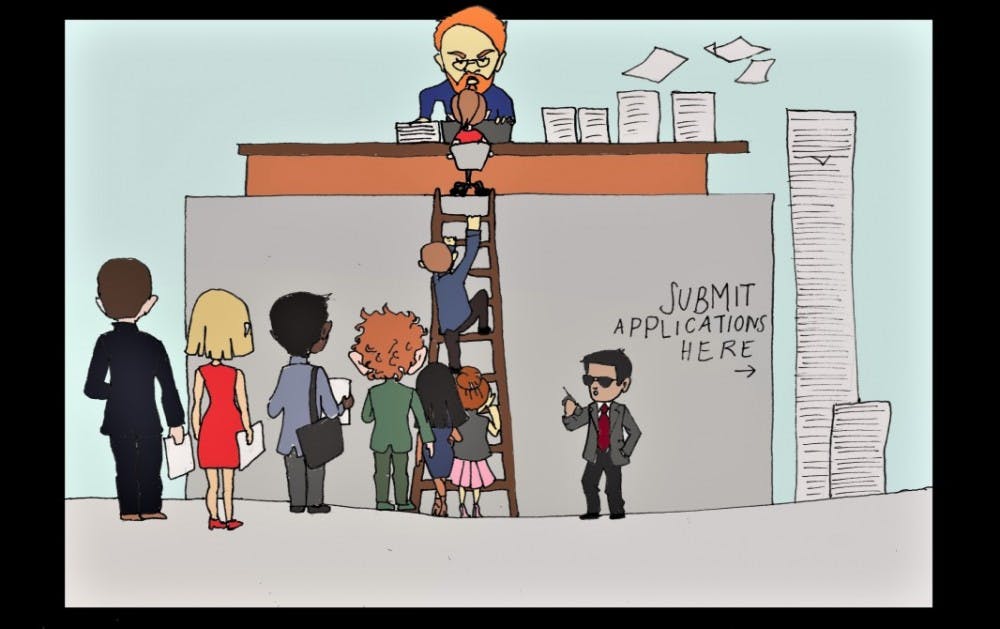Sitting in journalism classes in 2018, it is hard not to feel intimidated.
Some students have been editing videos since they were 15 while others have been designing websites for most of their life.
Others may feel that they are years behind in experience and that a love for writing may not be enough for them to excel in their major and future profession, especially considering the constant competition for a limited number of jobs in the field.
And this sentiment is true for many journalism students anticipating their impending graduation day – have to continuously adapt and change to the climate around them.
The times of traditional print, digital and broadcast journalism are over, and current journalism students should be worried about getting a job after college.
In this generation of Gen Z-ers, being tech savvy is more of an expectation than a talent. In 2017, the Pew Research Center reported that 67 percent of Americans get their news from social media.
In addition, sometimes when young journalists enter the job market, they feel they are expected to have a certain skill set and are afraid to admit they do not know certain things.
"From 2008 to 2017, newsroom employment in the U.S. dropped by 23 percent," a study from the Pew Research Center stated. This number should be alarming to prospective journalists.
Holliday Moore, a faculty associate at the Walter Cronkite School of Journalism and Mass Communication, commented on what skills modern journalism students need that past generations of journalists did not.
"No. 1 is humility – the ability to know that you don’t know everything, and you are never the expert, is a skill set I have noticed that a lot of younger journalism students are not grasping," Moore said. "What I mean by that is: students are expected to rush out into (the journalism field), and they are told to show no fear, but there's a pitfall there ... If you don't understand what you don't know, and you're afraid to admit you don't know, you're going to miss a great deal of understanding."
According to the Pew Research Center, “42.5 percent said they felt that they hadn’t acquired certain key skills necessary for real-world success — mainly in new digital technologies and job seeking strategies.”
One internship no longer cuts it, one graphic design class isn't substantial enough for your resume, and forget about that byline in the local newspaper. None of these qualify as "unique skills" to get that prestigious internship or job following graduation.
Now, years of journalism experience seem to be required before receiving that diploma. In addition, adding a minor to diversify a resume is an essential step to set yourself apart and create that 'personal brand.'
According to Benjamin Mullin in an article for Poynter, “There's a big market for people with experience and expertise in code; audience development and metrics; visual storytelling. But any of those particular skills are not enough. What news leaders really say they need are people who combine those kinds of talents and abilities with a strong editorial sensibility or a solid foundation in journalism fundamentals.”
Being thrown into coding and multimedia classes, journalism students learn that they need to develop skills they never thought went into reporting. And being wary of the lack of jobs and expectations is the start of the four-year panic of finding what can set them apart.
Reach the columnist at psaso@asu.edu and follow @paytonsaso on Twitter.
Editor’s note: The opinions presented in this column are the authors’ and do not imply any endorsement from The State Press or its editors.
Want to join the conversation? Send an email to opiniondesk.statepress@gmail.com. Keep letters under 500 words and be sure to include your university affiliation. Anonymity will not be granted.
Like The State Press on Facebook and follow @statepress on Twitter.




